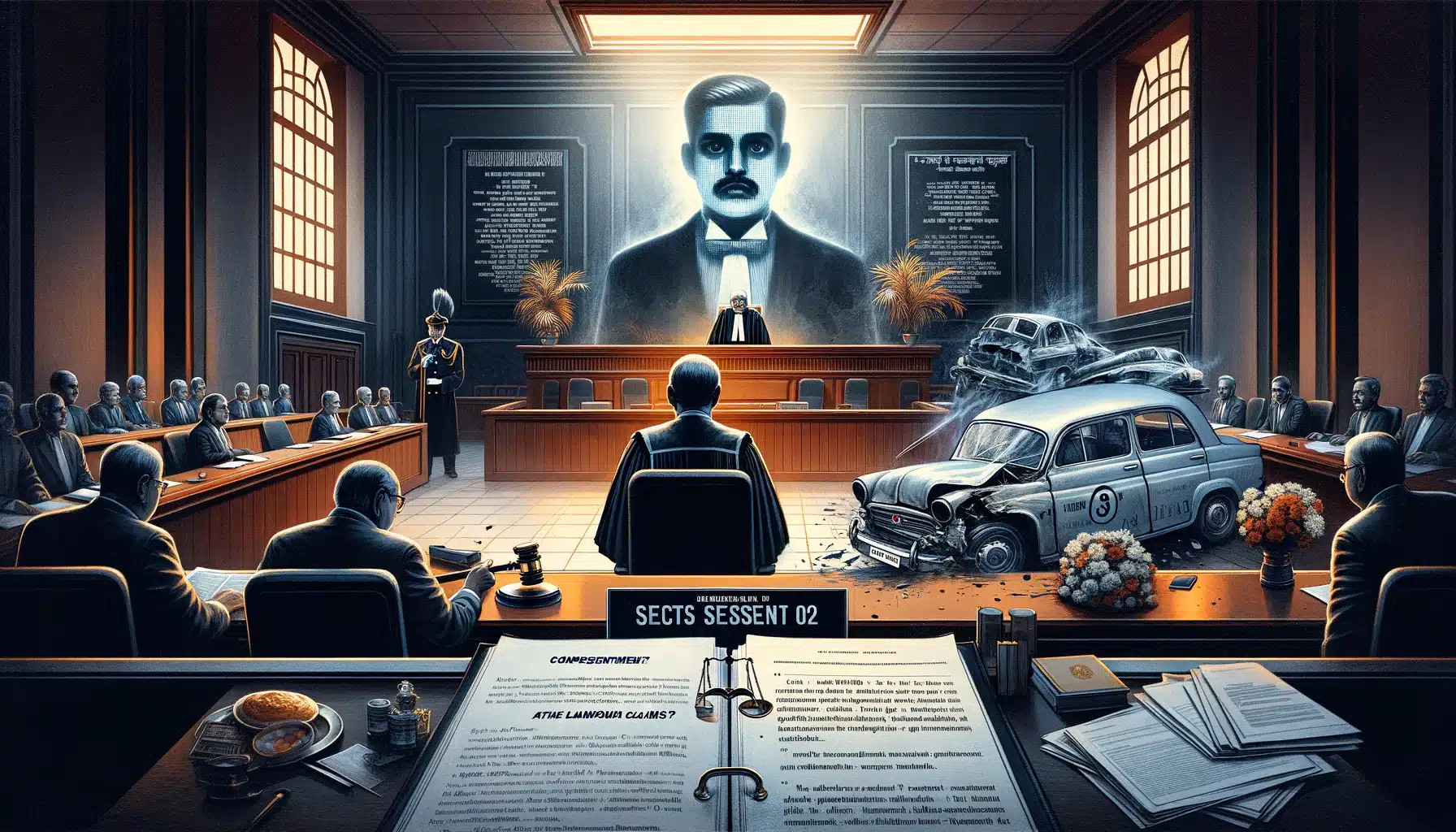Citation: AIR 1974 MAD 178, AIR 1974 MADRAS 178, 1986

Citation: AIR 1974 MAD 178, AIR 1974 MADRAS 178, 1986 MADLW 667
Date of Judgment: 22nd January, 1973
Court: Madras High Court
Bench: N.S. Ramaswami (J)
Facts
- Mr. C. P. Kandaswamy sustained injuries in a motor accident on 1st November, 1962 between his fiat taxi and respondent’s ambassador, coming from opposite direction in rash and negligent manner.
- He claimed Rs 25,000/- as compensation comprising of Rs 1000/- towards medical expenses; Rs 4000/- towards loss of professional income; Rs 10,000/- for shock, pain, and suffering; and Rs 10,000/- for permanent partial disability suffered by him.
Decision of The Motor Accidents Claims Tribunal, Coimbatore
Tribunal awarded Rs 5000/- as compensation which includes Rs 1000/- towards medical expenses; Rs 2000/- towards loss of professional income; and Rs 2000/- towards shock, pain, and suffering as accident was result of rash and negligent driving of ambassador. Petitioner filed an appeal and died after that.
Decision of the Madras High Court
Court dismissed the appeal as the cause of action was related to the disallowed portion of the claim, which does not survive after the death of the petitioner.
Key law points discussed
1. Whether the physical injuries sustained by the petitioner come under the clause “other personal injuries not causing the death of the party” excepted under Section 306 of the Indian Succession Act?
Yes
Rejecting the claim of the petitioner that the “other personal injuries not causing the death of the party” should be construed ejusdem generis in reference to earlier clauses which do not relate to physical injuries, court says that they cannot do so as earlier clauses includes word “assault”1, according to Indian Penal Code which is a physical injury which falls short of criminal force.
Moreover, the clause in question indicates that it is related to physical injuries as well as it speaks of injuries not causing the death of the party. If physical injuries are so serious as to cause the death of the party concerned, then the cause of action is with the dependents as defined under the Fatal Accidents Act and there would be no question of the cause of action not surviving. But, if the physical injuries are not so serious as to cause the death of the man, the cause of action is available to the injured himself, and if he dies later (not due to the physical injuries suffered), the cause of action would not survive to his legal representatives. That is the effect of Section 306 of the Indian Succession Act, 19252.
2. Whether on the death of the petitioner during the pendency of the appeal, the appeal should abate?
Yes
Court held that on the death of the injured pending the appeal, the cause of action regarding the disallowed portion of the claim does not survive. If the claim merges into a decree and the decree itself is being challenged by the opposite party, then the maxim action personalis moritur cum persona has no application. For example, if the insurance company has filed an appeal against the award made by the Tribunal, the death of the petitioner pending such appeal would not affect the rights of the legal representatives. But the appeal is one by the injured in respect of the disallowed portion of the claim. The injured having died subsequently, the cause of action would not survive as per the terms of Section 306 of the Indian Succession Act, 1925.
Court referring to Rustomji Dorabji v. Nurse3, Murugappa Chettiar v. Ponnusami Pillai4, and Paramen Chetty v. Sundararaja Naick5, where the suit was regarding the damages for malicious prosecution observed that the final judgment having been given against the defendant during his lifetime and the cause of action having merged in the decree, the legal representative of the defendant is entitled to prosecute the appeal in order to get rid of the decree which otherwise must be satisfied out of the estate of the deceased.
However, the court pointed out that the principle action personalis moritur cum persona has no application where the law clearly provides for the survival of the liability after the death of the concerned person. 6For instance, in Workman Compensation Act, where the workman who was injured died during the claim proceedings, Section 306 of the Indian Succession Act, 1925 does not apply on the ground that the compensation payable under Workmen’s Compensation Act does not arise out of any tort or wrong-doing by the employer, indeed the liability is an absolute one and that the liability to pay compensation is created immediately on the accident occurring and the workman suffering injury. The claim does not abate on the death of the workman during the pendency of the claim proceedings and Section 306 of the Indian Succession Act, 1925 has no application to such a case.
- Indian Penal Code, 1860, s. 351. ↩︎
- Demands and rights of action of or against deceased survive to and against executor or Administrator: All demands whatsoever and all rights to prosecute or defend any action or special proceeding existing in favour of or against a person at the time of his decease, survive to and against his executors or administrators; except causes of action for defamation, assault, as defined in the Indian Penal Code (45 of 1860), or other personal injuries not causing the death of the party; and except also cases where, after the death of the party, the relief sought could not be enjoyed or granting it would be nugatory. ↩︎
- ILR 44 Mad 357, (AIR 1921 Mad 1). ↩︎
- ILR 44 Mad 828, (AIR 1921 Mad 405). ↩︎
- ILR (1903) 26 Mad 499. ↩︎
- State of Andhra Pradesh v. Godavarthi Kasiviswanadham, (AIR 1970 Andh Pra 80 (FB). ↩︎


